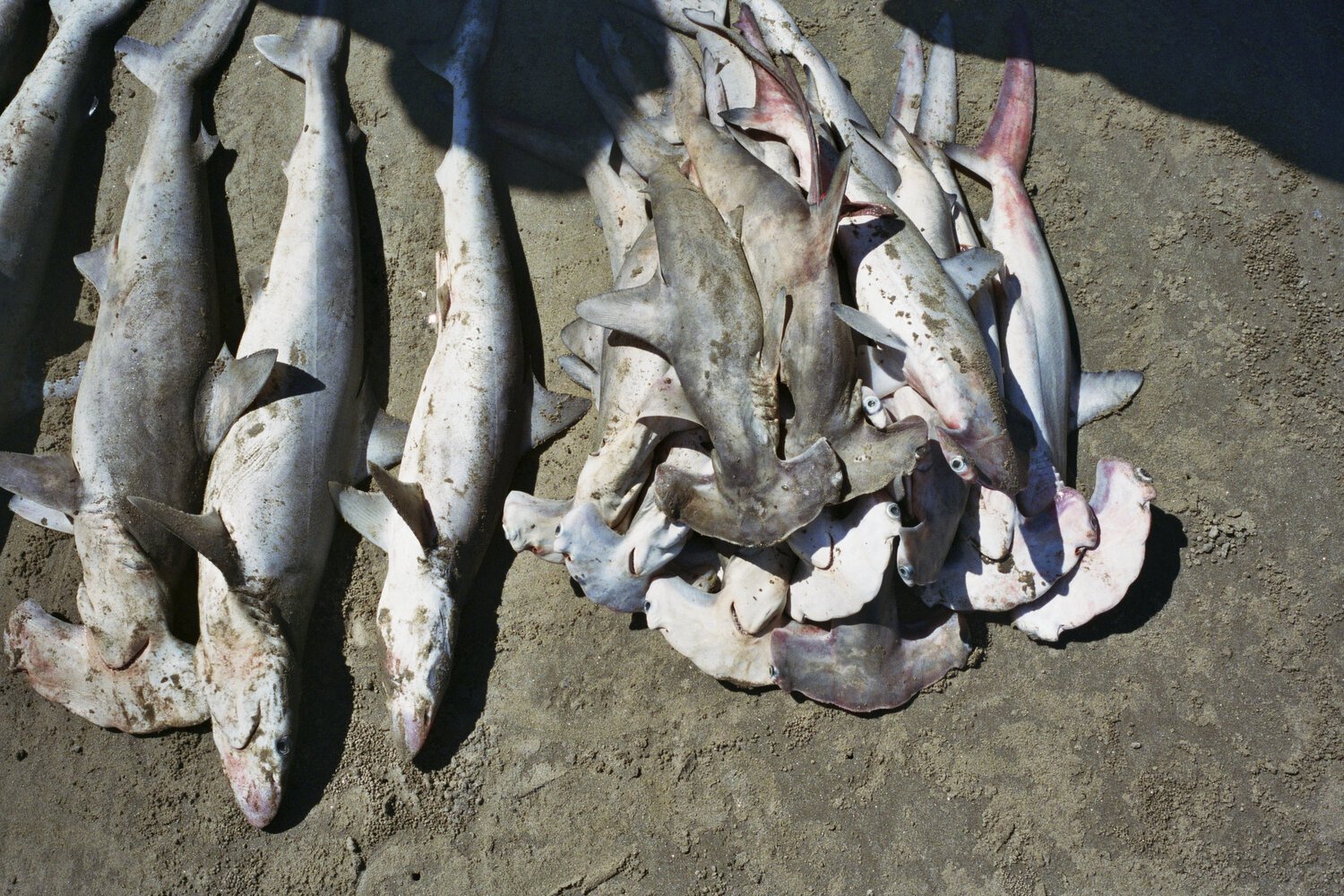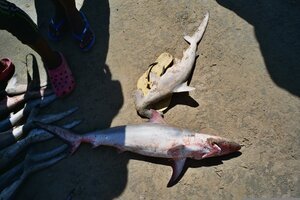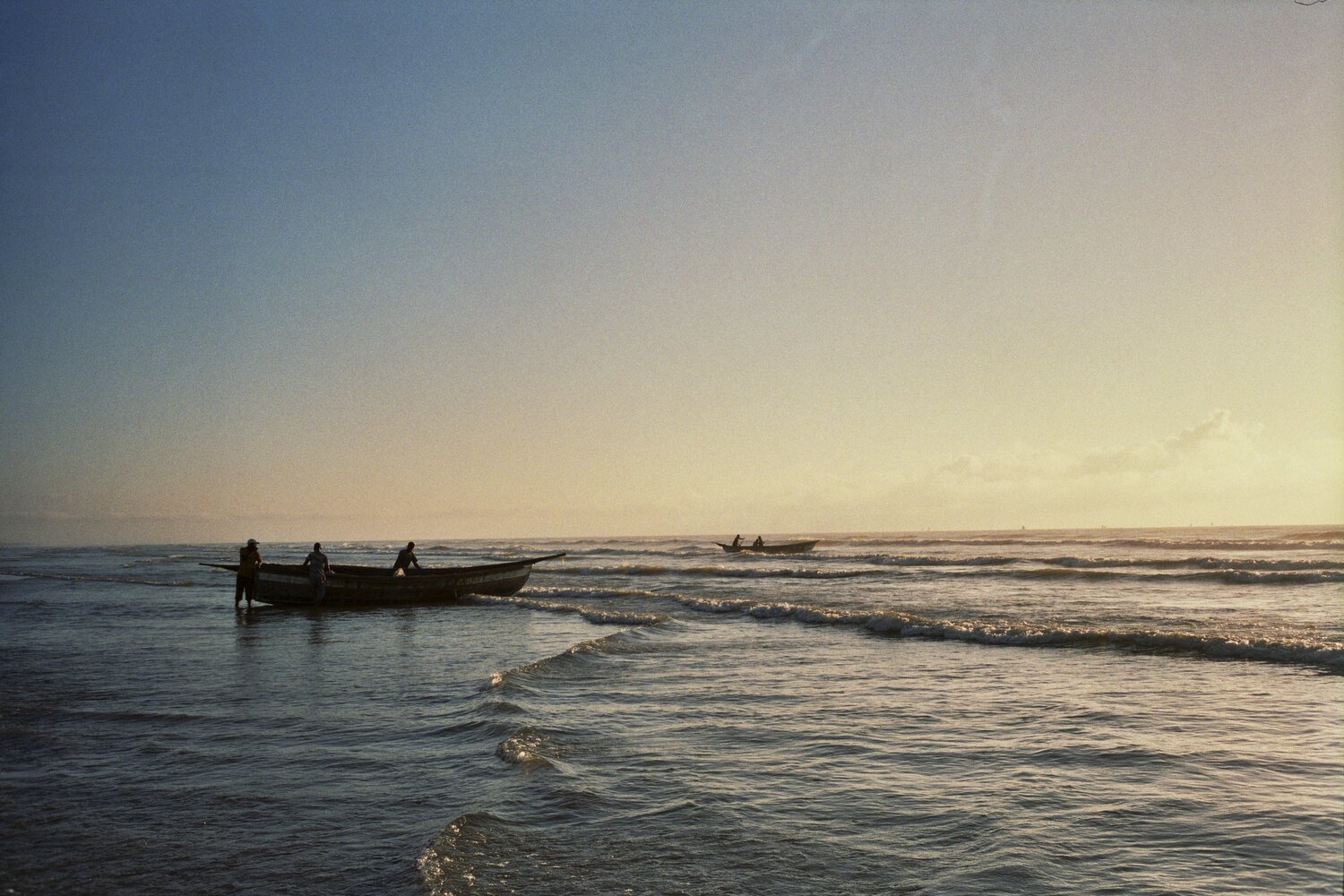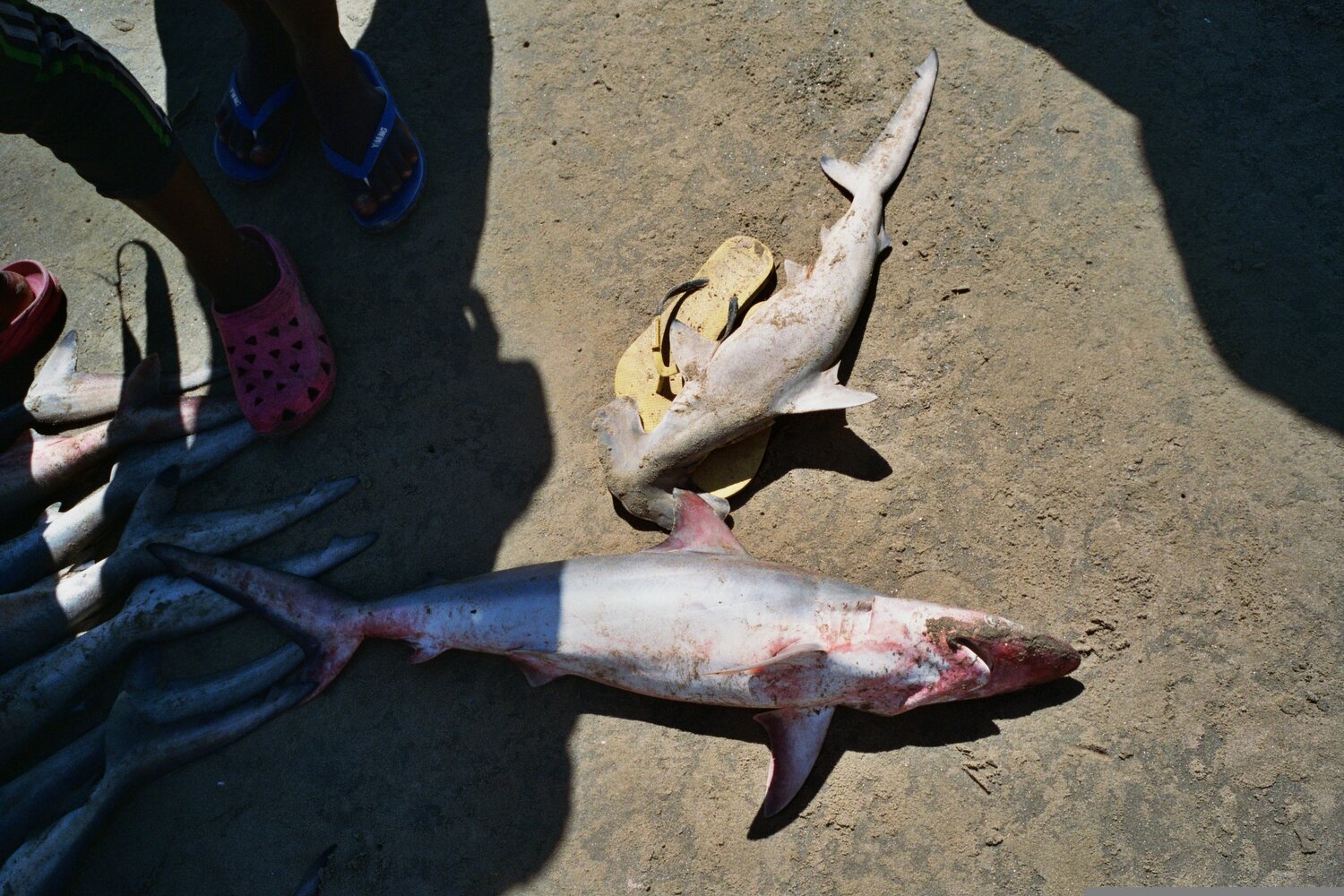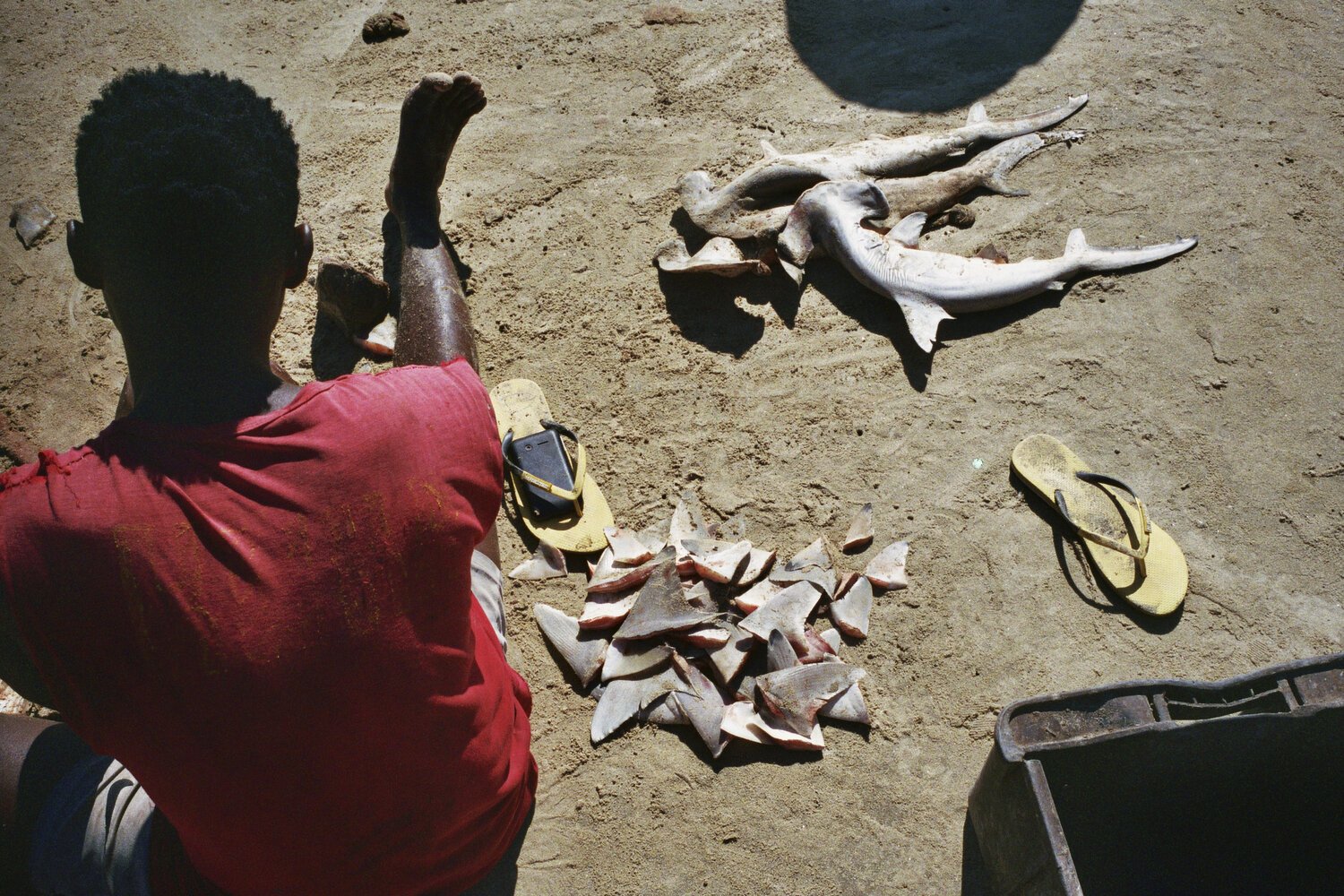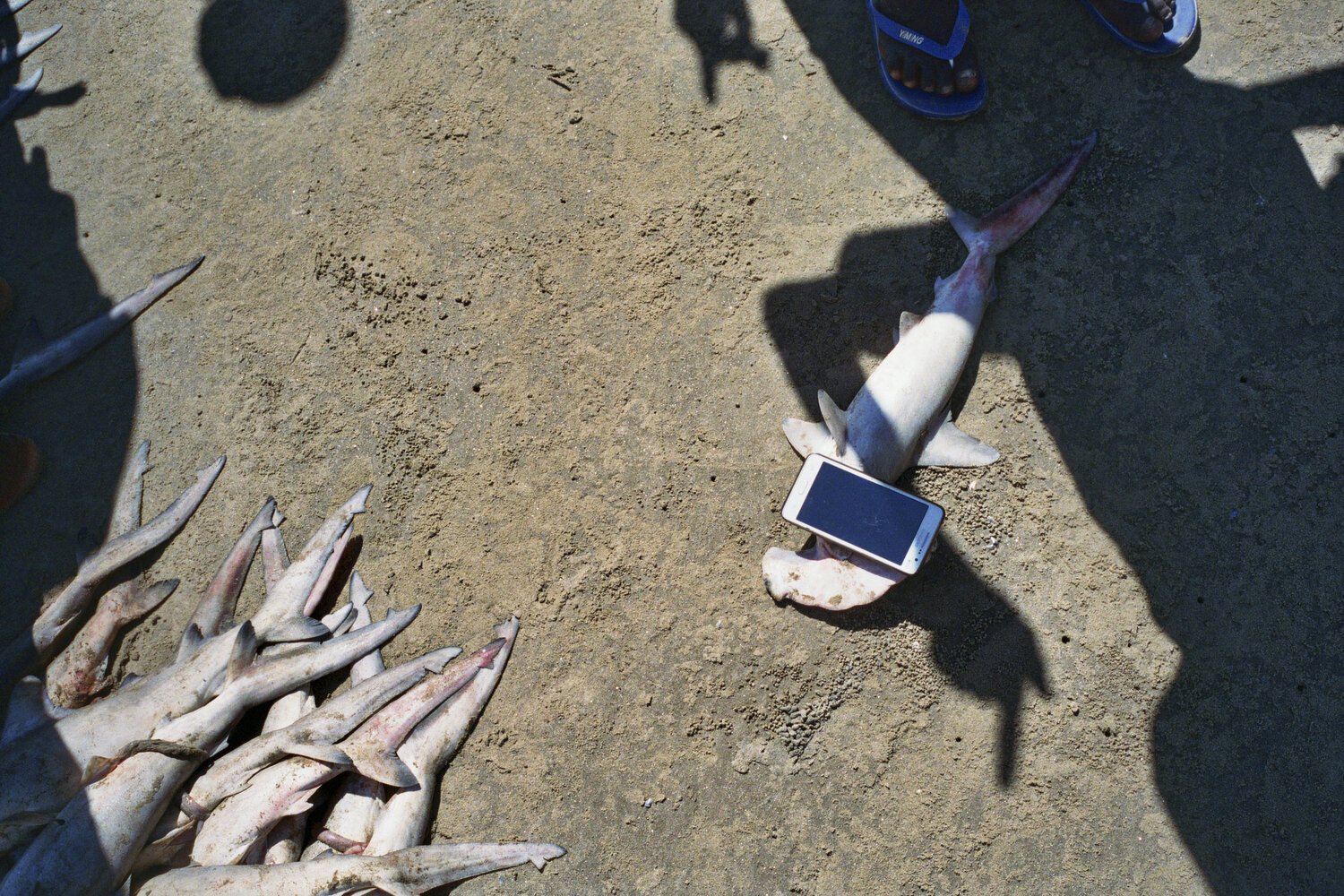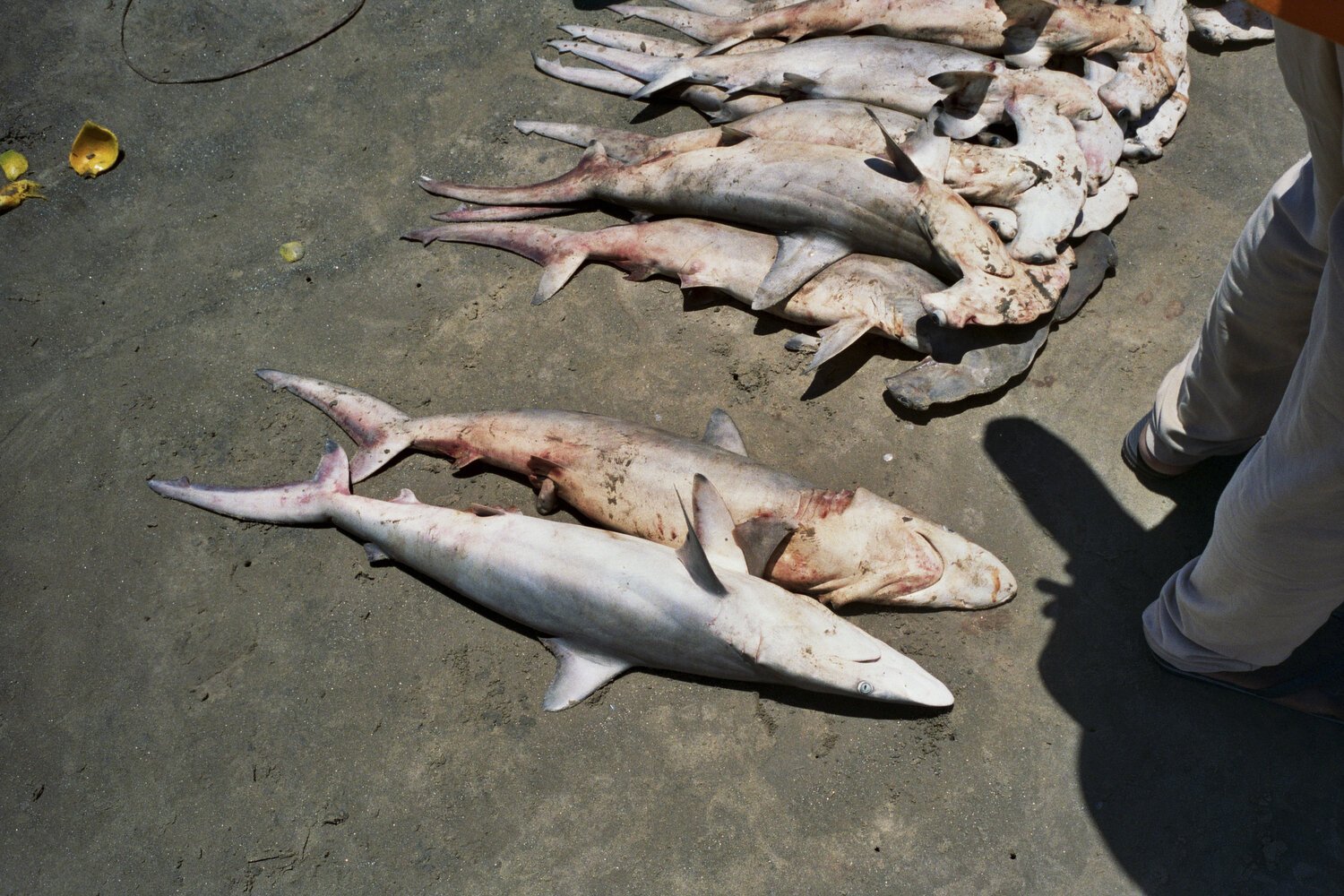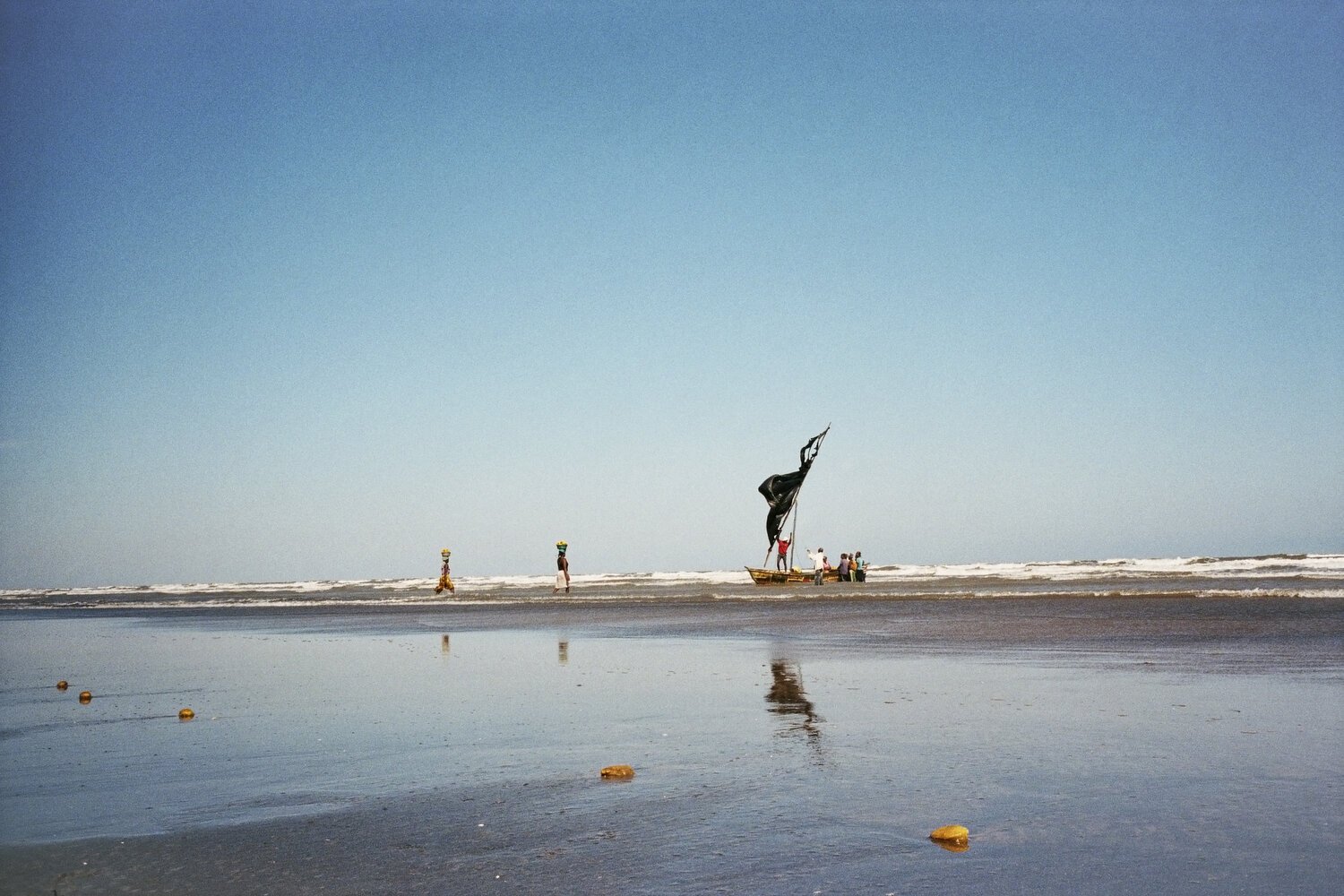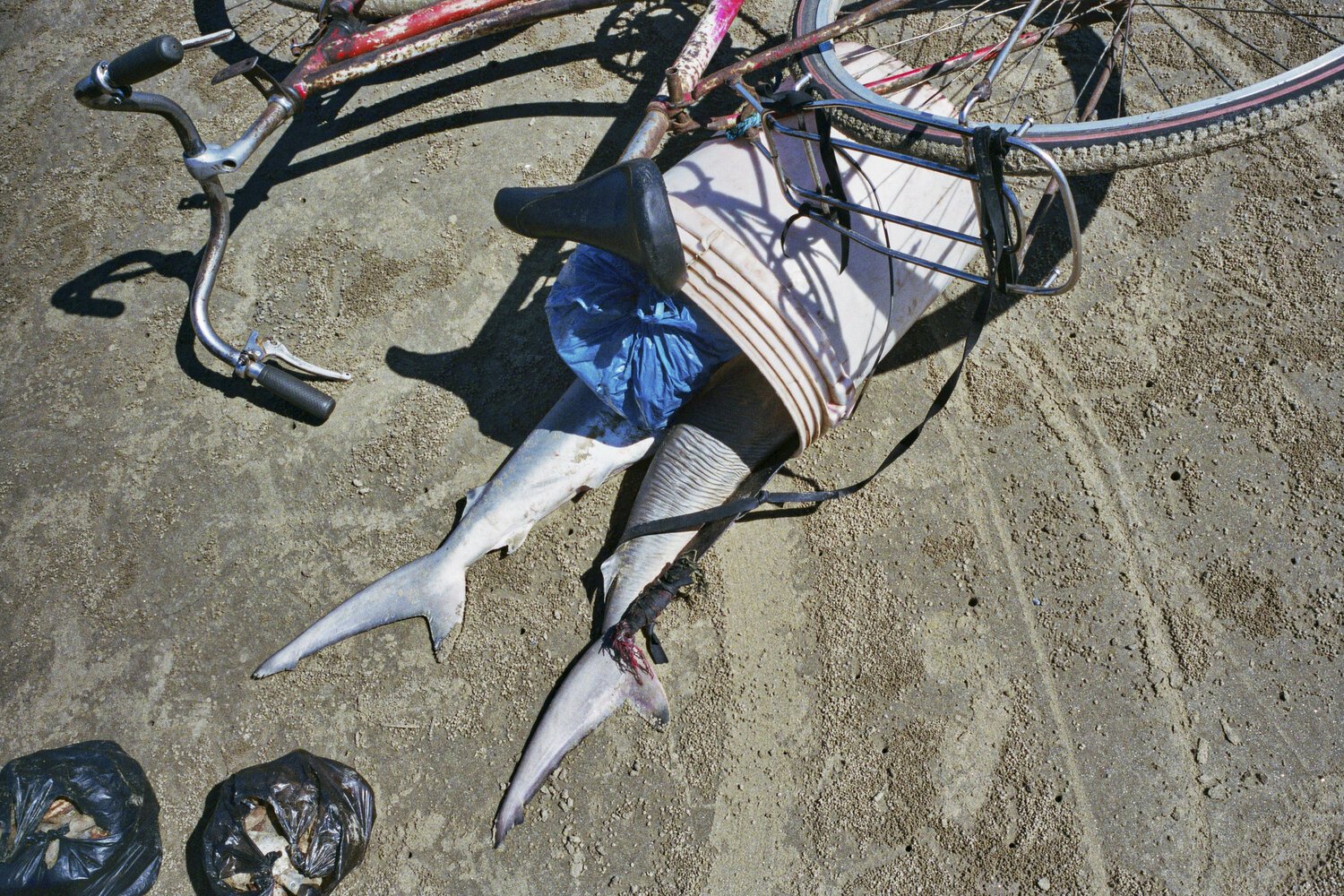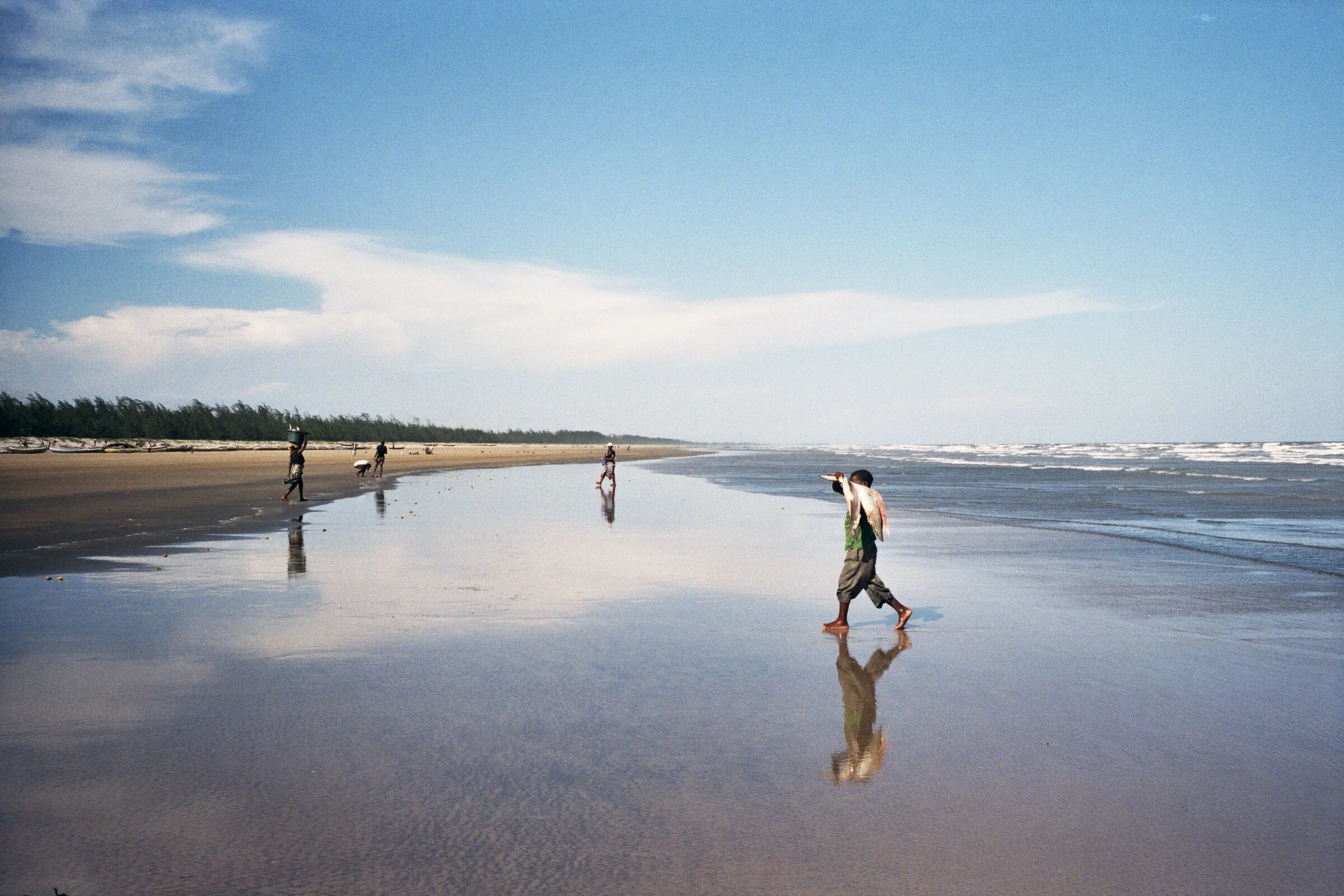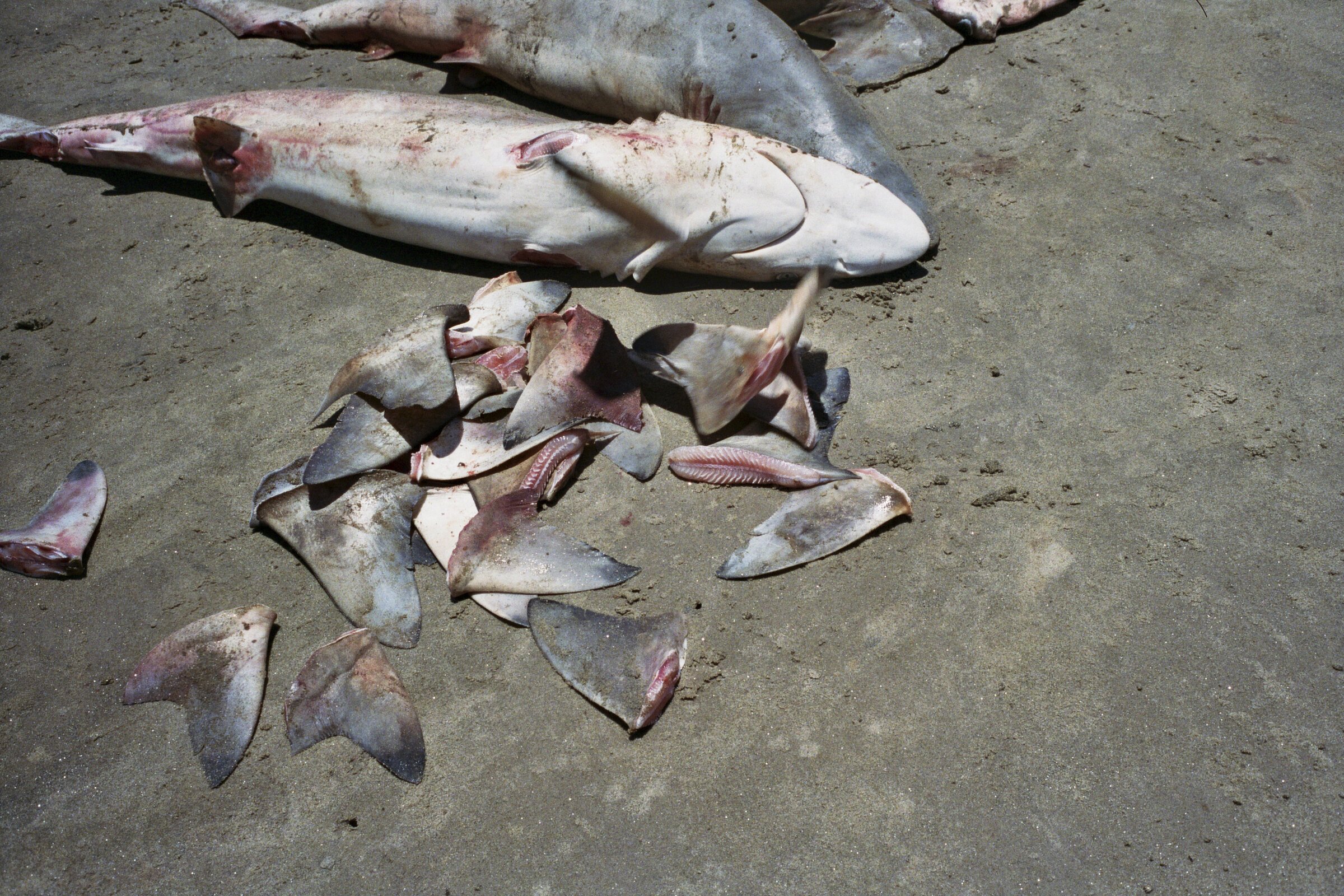MOZAMBICAN SHARK FIN SOUP
A boy carries finned sharks across the beach after having washed them in the ocean water.
Zalala is a small and vibrant fishing village on Mozambique’s golden coast. Sebastian and I were there to shoot a short documentary about a development project which has been working to support local artisanal fishing communities across the country.
We spent most of our time filming the wide and windy beach. At dawn, dozens of fishermen would walk past the line of misty acacia trees separating the village from the shore, they pulled their wooden barks fitted with black tarpaulin sails into the water, and ventured out in the Indian Ocean. In the afternoon, locals would flood the beach, buying and selling fish and fresh fruit in a buzz of trade. We were told stories about how things had improved for the residents of Zalala, how businesses were booming and how new measures had led to the recovery of fish populations. All the while I rushed from scene to scene, filming and snapping away on my dad’s old 35mm Leica M2.
Then one day we noticed a large pile of silver fish shimmering in the sand. They were Sharks. Juvenile black tip reef sharks and hammerhead sharks. Why were they catching such young and endangered animals? The answer was piling up around us: their fins. It turns out Mozambique is a hotspot for shark fins, which are illegally exported to China as the key ingredient to their infamous shark fin soup, a traditional ‘delicacy’ served at special occasions. Around the world, approximately 100 million sharks are killed each year for this dish. Most sharks are caught and finned while they are alive, and thrown overboard to die a slow death. Conservationists estimate that within a decade, most species of shark will be lost. Sharks reproduce relatively slowly, so this massive harvesting will basically reduce shark populations faster than they can procreate. Boom, there goes another branch on the tree of life, causing a devastating impact on the world’s oceans, all for the sake of soup. SOUP!
Now you might be thinking that these fins must taste so incredible that people just can’t stop themselves from gorging on pricey endangered soup. But no! Shark fins have neither taste nor nutritional value, in fact shark fin soup is generally flavoured with chicken broth. Plus, sharks biomagnify toxins, so eating their toxic meat raises the risk of dementia, sterility and heavy metal poisoning. So if it’s not out of gluttony or nutrition, then why go through with this custom? It’s essentially a status thing. It’s an expensive dish, we’re talking over $100 a bowl, so if you can afford it, you’ve made it to the top.
Surely this trade must be one of the most ridiculous, cruel and wasteful industries that humans have devised and still practise; yet standing above the school of dead hammerheads being methodically finned, I could not blame these fishermen. On average, people in Mozambique live on less than a dollar a day. If you can get $12 for a fin, in a place where you’re making $20 a month, wouldn’t you try to capture as many sharks as possible to make up to 100 times what your normal income would be? And so the regulation to export the fins is being ignored and the trade continues to flourish.
Now you might be thinking that these fins must taste so incredible that people just can’t stop themselves from gorging on pricey endangered soup. But no! Shark fins have neither taste nor nutritional value, in fact shark fin soup is generally flavoured with chicken broth. Plus, sharks biomagnify toxins, so eating their toxic meat raises the risk of dementia, sterility and heavy metal poisoning. So if it’s not out of gluttony or nutrition, then why go through with this custom? It’s essentially a status thing. It’s an expensive dish, we’re talking over $100 a bowl, so if you can afford it, you’ve made it to the top.
Surely this trade must be one of the most ridiculous, cruel and wasteful industries that humans have devised and still practise; yet standing above the school of dead hammerheads being methodically finned, I could not blame these fishermen. On average, people in Mozambique live on less than a dollar a day. If you can get $12 for a fin, in a place where you’re making $20 a month, wouldn’t you try to capture as many sharks as possible to make up to 100 times what your normal income would be? And so the regulation to export the fins is being ignored and the trade continues to flourish.




